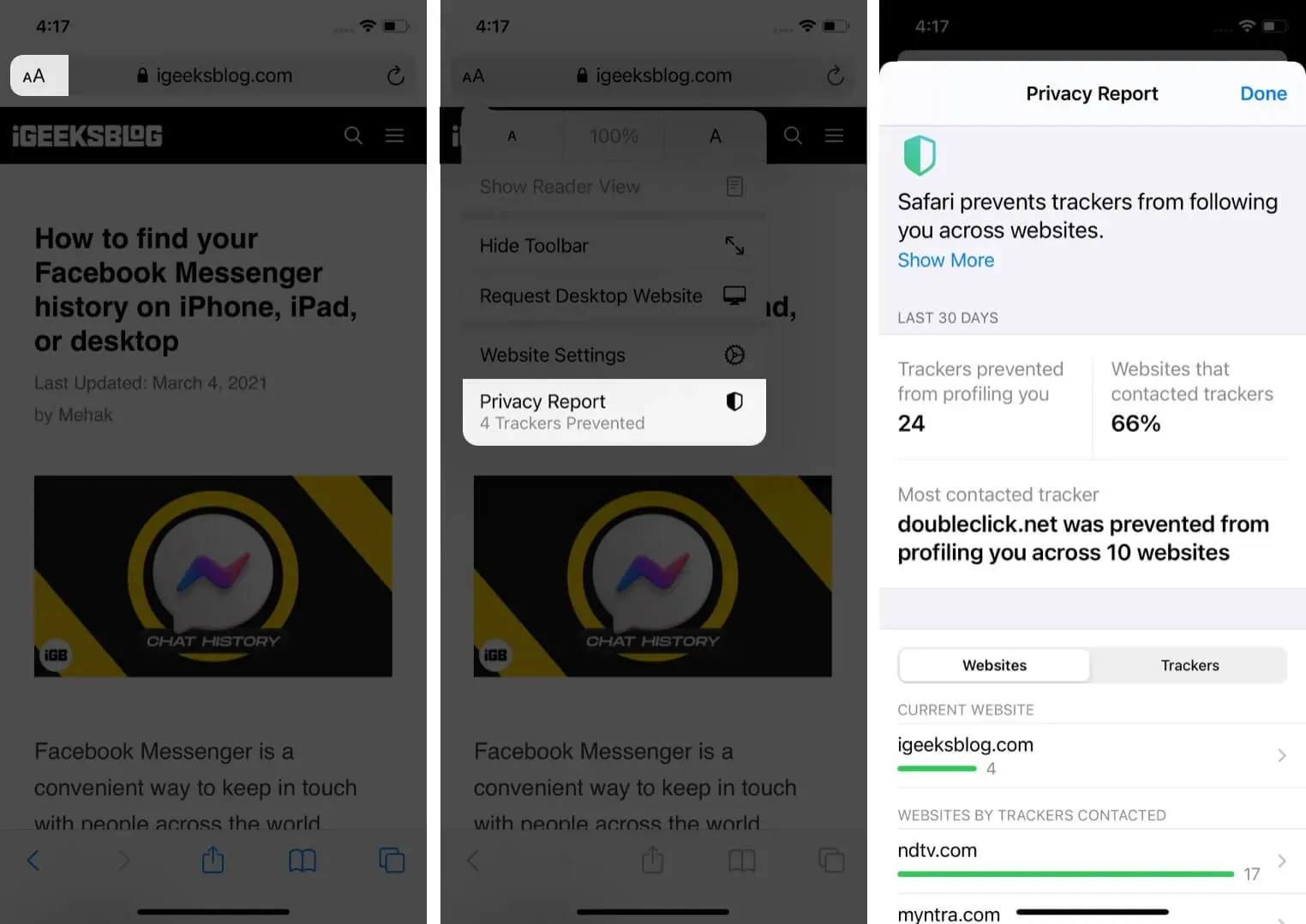How to stop websites from tracking you in Safari on iPhone

It’s no secret that websites track our online activity for various reasons, such as showing targeted ads or offering a better user experience. But if you’re concerned about privacy, you can stop websites from tracking you on iOS. By default, Safari already limits third-party cookies on your phone, but you can also control other settings, including location access.
Let me tell you more and explain how to stop websites from tracking you in Safari on iPhone and iPad.
- How to stop websites from tracking you in Safari to protect your privacy
- Prevent websites from tracking your location in Safari
- How to View the Safari Privacy Report on iPhone and iPad
How to stop websites from tracking you in Safari to protect your privacy
Safari boasts several different privacy and security settings that you can set to prevent websites from tracking you. Here’s what to do:
- Go to Settings → Safari.
- Scroll down to the “Privacy and Security”section.
Here you will see several different options that you can turn on or off as you see fit:
- Prevent cross-site tracking: This restricts third-party cookies and data. It’s enabled by default, but you can disable it to enable cross-site tracking.
- Block all cookies: Turn on this setting to prevent websites from placing cookies on your iPhone. To clear the cookies already stored on your iPhone, click Clear History and Website Data. Please note that some websites must use cookies in order to function effectively.
- Fraudulent website warning. Keep this setting enabled to have Safari show a warning if you visit a suspicious phishing or otherwise untrusted website.
- Check for Apple Pay: Enable this setting if you want websites that accept Apple Pay to know that this service is enabled on your device. You can turn it off to prevent websites from checking if you have Apple Pay.
Prevent websites from tracking your location in Safari
Have you ever been annoyed by pop-ups on websites asking for your location? There is often a legitimate reason for this, such as a desire to provide you with the most up-to-date information based on your region. But it can also be aggressive and interfere with your browsing experience. Luckily, you have the option to prevent these annoying pop-ups from appearing. Just follow the instructions below.
- Go to Settings → Safari.
- Scroll down and tap Location.
- To prevent websites from requesting your location, select Deny. Note. If you select “Allow”, this will allow websites to track your location without being asked. If you select “Ask”, websites will show you a pop-up asking for your permission to track your location.
How to View the Safari Privacy Report on iPhone and iPad
Safari has a built-in privacy report that shows you a summary of the trackers that have been detected and stopped on the web page you are visiting. It will also help you protect yourself from malicious websites and hide your online activities from others using the same device.
To view the privacy report → tap the AA icon on the left side of the search field → tap Privacy Report.

FAQ
By default, Safari limits the number of third-party trackers. To block all trackers, you need to go to Settings → Safari → Block all cookies. However, this may affect your browsing experience as some websites require cookies and trackers to function effectively.
No, some cross-site tracking is required for web pages to function effectively and provide a seamless user experience. This is only of concern when it is done by suspicious or aggressive websites.
Safari keeps track of the sites you visit the most and they show up when you open a new tab. To disable this option, go to Settings → Safari and turn off Frequently Visited Sites.
When you use private mode in Safari, the browser will not record any temporary data on the device you are using. This means that the pages you visit or search for will not appear in your browsing history after you close your session. However, your network administrator or ISP may still see which pages you have visited.
So that was a quick overview of how to stop websites from tracking you or requesting your location. If you have additional questions, let me know in the comments below. You can also read my detailed Safari vs Google Chrome comparison to find out which is best for your iPhone or iPad.
Leave a Reply